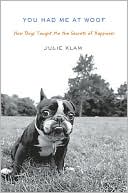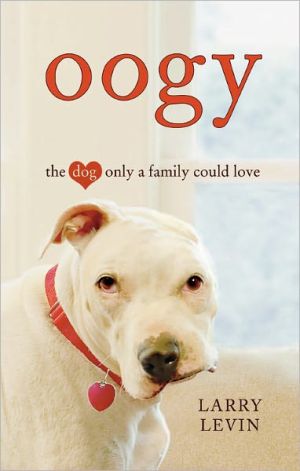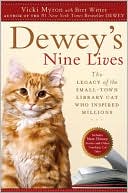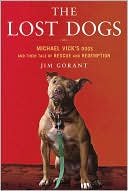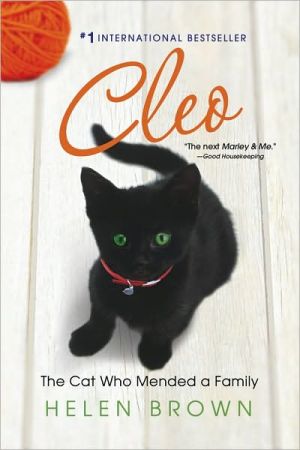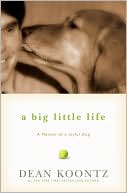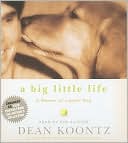The Philosopher's Dog: Friendships with Animals
The philosopher Raimond Gaita has always been fascinated by animals– their obvious intelligence and disturbing brutality, their uncanny responsiveness to our moods and needs, the deep feelings they elicit from us and seem to return. In this marvelous, luminous book, Gaita trains the lens of philosophy on the mystery and beauty of the animals he has known and loved best. The Philosopher’s Dog is one of those rare works that engage the heart from the very first paragraph and haunt the mind long...
Search in google:
The philosopher Raimond Gaita has always been fascinated by animals– their obvious intelligence and disturbing brutality, their uncanny responsiveness to our moods and needs, the deep feelings they elicit from us and seem to return. In this marvelous, luminous book, Gaita trains the lens of philosophy on the mystery and beauty of the animals he has known and loved best. The Philosopher’s Dog is one of those rare works that engage the heart from the very first paragraph and haunt the mind long after one has finished reading.What does Gaita’s dog, Gypsy, think about while she sits on her mat gazing out to sea for hours on end? Why did the irascible cockatoo Jack greet Gaita’s father with kisses each morning but bite everyone else? How can we acknowledge that animals are sentient and yet deny that they have consciousness? Is it possible to love animals and still eat meat? In contemplating questions like these, Gaita weaves together personal stories–inspiring, sometimes heartbreaking accounts about the animals he and his family members have sheltered–with the reflections and analysis of a professional philosopher.A graceful, engaging stylist, Gaita is perfectly lucid as he grapples with great thinkers through the ages–from Socrates to Wittgenstein, Descartes to Hannah Arendt. And yet, as important as formal philosophy has been to him, Gaita frankly acknowledges that he has learned much about the nature of life from Gypsy and Jack and his courageously arrogant cat Tosca. In the end, he argues that love should be the essence of our bond with animals, the critical factor that guides how we treat them and think about their place in our world.In pondering the meaning and morality of his relationships with animals, and with the natural world more generally, Raimond Gaita has created a surprising masterpiece, a book of startling insights, spellbinding stories, meticulous observations, and wise reflection. At once engrossing and thought-provoking, The Philosopher’s Dog is a supremely enjoyable book. Publishers Weekly Offering entertaining animal stories and delicate philosophical reflections on them, University of London philosopher Gaita (Romulus, My Father) begins with stories of animals from his rural childhood (Jack the cockatoo, Orloff the greyhound) and his adult life (Gypsy the German shepherd, Tosca the cat). As the book progresses, the stories become less dominant as serious philosophy takes the fore. On whether dogs feel sensations, for example, Gaita argues (on Wittgensteinian grounds) that "there is no room for serious doubt" that they do. Why we should pay respect to dead animals or care about butterflies and bees; the common "creatureliness" of people and animals; and how someone who loves animals can kill and eat them-all are issues that are raised at a leisurely pace. Throughout, Gaita develops the concept of a "realm of meaning" rooted in "the understanding of the heart." Literature, including stories, he argues, affords special access to this realm (and thus provides a rationale for the plan of the book). The premise and pace may lose some readers, and others may be alarmed by Gaita's dismissal of the doctrine of animal rights in preference for "[a]ttachment to animals and a disinterested love of nature." But what comes through most clearly is Gaita's appreciation for "the generosity with which animals give themselves to us... and the grace they bring to our lives." Agent, Witherspoon Associates. (On sale July 20) Copyright 2004 Reed Business Information.
\ Publishers WeeklyOffering entertaining animal stories and delicate philosophical reflections on them, University of London philosopher Gaita (Romulus, My Father) begins with stories of animals from his rural childhood (Jack the cockatoo, Orloff the greyhound) and his adult life (Gypsy the German shepherd, Tosca the cat). As the book progresses, the stories become less dominant as serious philosophy takes the fore. On whether dogs feel sensations, for example, Gaita argues (on Wittgensteinian grounds) that "there is no room for serious doubt" that they do. Why we should pay respect to dead animals or care about butterflies and bees; the common "creatureliness" of people and animals; and how someone who loves animals can kill and eat them-all are issues that are raised at a leisurely pace. Throughout, Gaita develops the concept of a "realm of meaning" rooted in "the understanding of the heart." Literature, including stories, he argues, affords special access to this realm (and thus provides a rationale for the plan of the book). The premise and pace may lose some readers, and others may be alarmed by Gaita's dismissal of the doctrine of animal rights in preference for "[a]ttachment to animals and a disinterested love of nature." But what comes through most clearly is Gaita's appreciation for "the generosity with which animals give themselves to us... and the grace they bring to our lives." Agent, Witherspoon Associates. (On sale July 20) Copyright 2004 Reed Business Information.\ \ \ \ \ KLIATTA professor of moral philosophy at the University of London, best known for his book Romulus, My Father, looks at the relationships humans have with animals, revealing more insight into the humans. Gaita tells stories from his own and his loved one's experiences with animals: Jack the cockatoo, Gypsy the dog, Tosca the cat, bees, butterflies and more, examining human responses to them and sometimes comparing them to responses to other humans in similar circumstances. He asks questions about animals' abilities to reason and feel emotion and wonders what they think about. He draws the conclusion that science will not enhance what we intrinsically know about them, and how we relate to them should be motivated by love. Gaita questions the many dishonorable actions taken against animals, but holds firm to the idea that they do not possess the same moral personhood as humans. He discusses some ideas of philosophy greats such as J.M. Coetzee, Hannah Arendt, Ludwig Wittgenstein and Rene Decartes. This book is intended for a general audience and can be enjoyed for its stories, but it will appeal more to a reader with a philosophical bent or a deeply questioning mind. KLIATT Codes: SA—Recommended for senior high school students, advanced students, and adults. 2002, Random House, 220p., Ages 15 to adult. \ —Ann Hart\ \ \ Kirkus ReviewsThe moral conundrums of the human-animal bond. Few readers will be able to resist the moving episodes from an Australian childhood Gaita (Philosophy/Kings College London; A Common Humanity, not reviewed, etc.) initially relates, based largely on his father's natural affection and affinity for animals in general and, specifically, house pets Jack the cockatoo and Orloff the dog. Tender and affecting, they are economically rendered with obvious sincerity. But-and there are hints this is coming-this is not about letting us off easy with misty, sentimental recollections about the animals in our lives. Readers must join a forced march into intellectual battle with the major paradoxes and contradictions of those so-called bonds and how society tends to buffer them. It's not just confronting the idea of "mass murder" of animals for food, clothing, and convenience, for example, but why fish, cows, and chickens have to die to feed your pet cat. Really, why? While many of these philosophical forays are spun out of the author's close ties with animals, some digress considerably, as does a longish chapter on how the challenges and dangers of mountaineering as a hobby shaped his contemplations on life and reality-somewhat redeemed by a stunning anecdote from the writings of famed Alpinist Walter Bonatti on finding a butterfly dying in the snow at high altitude. A consistent undercurrent plumbs the nature of animals as "sensate" creatures, as when Gaita states: "It is obvious why our understanding of animals should be informed by rigorous, controlled observation which is cautious in coming to conclusions." But even this, he insists, must be mediated by philosophical inquiry. Science can't decidewhether chimps use language, for example, unless we fully establish and agree on what constitutes language. Therapy for people who are grieving pets, and a litmus test for self-professed nature lovers. Agent: Kim Witherspoon/Witherspoon Associates\ \

